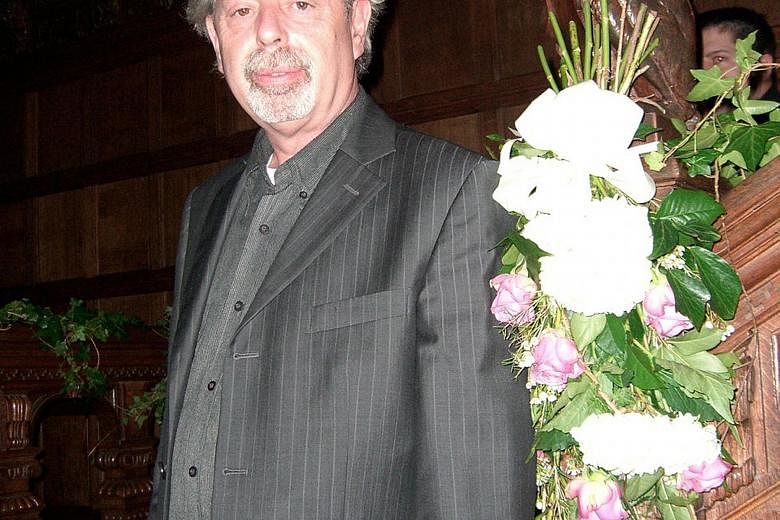It was 1983 when film-maker Gerry Troyna, then a 35-year-old starting to make a name for himself after a series on great railway journeys, got a call from David Bowie. The rock star wanted to know if he was interested in directing a documentary of his upcoming tour of Singapore, Hong Kong and Bangkok.
"I was shocked," Mr Troyna, now 67, told The Sunday Times in a phone interview from his home in Yorkshire, Britain. He was hired, and what ensued was a "whirlwind" experience.
Interest in the rock icon's music has skyrocketed since his death at the age of 69 last Sunday. In the latest British charts, he had 19 albums in the top 100 and 13 entries in the top 100 singles, ranging from songs dating back to the 1960s to tracks off his new album, which was released just three days before his death, reported Reuters. His tracks were also streamed more than 19 million times on audio-streaming services such as Spotify.
In Singapore, interest has also swirled around the little-known 78-minute-long documentary called Ricochet, and the strange glimpses it gives of Bowie's experiences here when he arrived for his Serious Moonlight tour.
"He wanted to record and recall his experience in South-east Asia. He paid for it himself," said Mr Troyna. The Singapore portion, filmed over three days, lasts about 20 minutes and presents a unique blend of sounds and images.
One notable scene happens in a yellow-top taxi, where Bowie chats with the driver on the proposal to ban chewing gum (the ban went into effect in 1992).
The cabby says that a ban will be both good and bad - bad for those who dispose of their chewing gum properly, and good because otherwise "you get chewing gum stuck everywhere".
Another scene which stands out is when Bowie visits Far East Plaza, which had just opened in 1982 and was the country's biggest mall then. The star is seen riding up and down empty escalators bathed in blue light and, at one point, is told off for filming on the premises by a security guard with sunglasses.
Such scenes have raised plenty of speculation on their significance, but Mr Troyna said there was no political agenda.
He explained that the entire documentary was based on Bowie's experiences, and that the Singapore portion turned out to be "somewhat alienating".
Mr Troyna said they had randomly chanced upon the mall.
Most of the scenes were unplanned - even one in which Bowie is refused entry by two female performers when he tries to watch a Chinese opera rehearsal. Instead, he is invited to watch the opera later that night.
Bowie says he would try to attend it, not realising that he would be performing his own big gig at the National Stadium.
"He never took on a superstar attitude to those who worked with him and the general public," Mr Troyna said. "He would never shout or put anyone down. I have never seen him in a bad mood."
While they did not keep in touch after the film, Mr Troyna, who went on to be an award-winning film-maker, producing documentaries for the likes of BBC, joined many others in his praise for the late music legend.
He said: "He was very much an extraordinary artist, acclaimed in many aspects of music and the arts, entertaining and self-deprecating.
"I have nothing but admiration for him."

